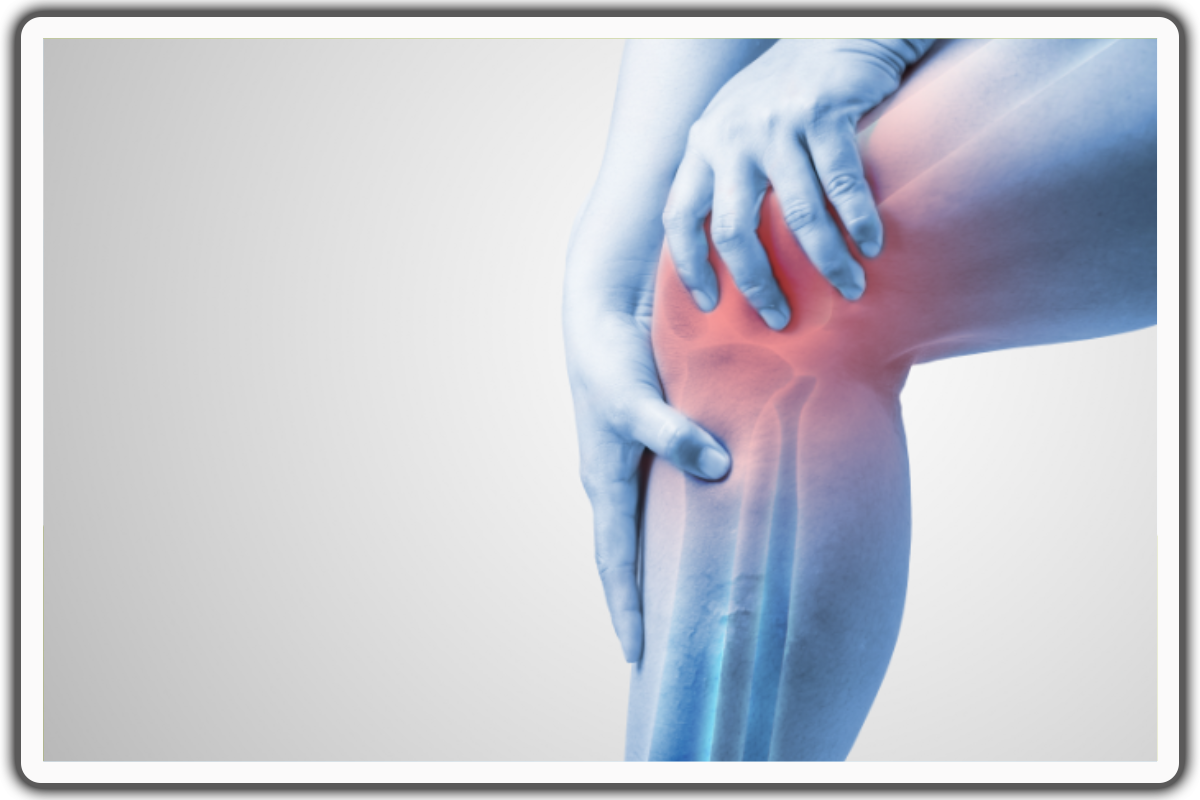
Top List of Foods that Cause Joint Pain
Are you experiencing frequent joint pain? You might be surprised to learn that your food could contribute to your discomfort. This article has compiled a list of foods that cause joint pain, shedding light on the culprits lurking in your pantry. From sugary treats to processed foods, we will uncover the foods that could worsen your joint pain and offer healthier alternatives to consider.
By understanding common culprits, you can make adjustments to your diet and find relief. So, if you're tired of that nagging joint pain and arthritis, keep reading to discover the foods you may want to avoid.
Arthritis manifests as joint inflammation, leading to pain, stiffness, and swelling. Various forms exist, with osteoarthritis and rheumatoid arthritis among the most prevalent.
Osteoarthritis (OA) - Osteoarthritis is a condition where the cartilage, the protective tissue in joints, undergoes degeneration, leading to joint problems, covering the ends of bones. As cartilage deteriorates with time, bones can scrape against each other, resulting in pain and stiffness.
Common symptoms of osteoarthritis include joint pain, limited range of motion, and joint stiffness, especially after periods of inactivity.
Rheumatoid Arthritis (RA) - Rheumatoid arthritis happens when the body's immune system erroneously targets the synovium, the protective lining encompassing the joints, due to an autoimmune malfunction. This develops inflammation that can lead to joint damage.
Rheumatoid arthritis presents symptoms such as discomfort, inflammation, and reduced joint mobility, often simultaneously affecting multiple joints. Morning stiffness is a hallmark characteristic of RA.
The Role of Diet in Joint Pain
When it comes to joint pain, many factors can contribute to its occurrence. While age, genetics, and injuries significantly influence, people often overlook the crucial role of diet. However, the food we consume can profoundly impact our joints and overall joint health.
A poor diet can lead to systemic inflammation in the body, exacerbating joint pain. On the other hand, a healthy diet can provide the essential nutrients to support joint health and reduce inflammation. By understanding the role of diet in joint pain, you can make informed choices about the foods you consume.
Top Foods that Cause Joint Pain
Managing arthritis involves understanding how certain foods can influence inflammation. Incorporating anti-inflammatory foods into your diet is important in mitigating inflammation and promoting joint health.
Let's dig deep into specific foods and factors to consider:
1. Processed Foods:
Highly processed foods laden with additives, preservatives, and unhealthy fats, have been linked to the worsening of arthritis signs. These foods, often found in convenience snacks and pre-packaged meals, can trigger inflammation, contributing to arthritis. Opting for whole, unprocessed foods is crucial for those seeking relief from arthritis.
2. Sugar and Sweets
Refined sugars in candies, cookies, pastries, and sugary beverages stimulate inflammation. Moreover, a diet high in refined carbohydrates intensifies stress on joints. Transitioning to natural sweeteners and focusing on whole fruits can be a fundamental step in adopting an anti-inflammatory diet for managing inflammatory arthritis.
3. Fried Foods and Fast Foods:

Saturated fats and trans-fats-rich foods, such as those seen in fried foods and fast foods, contribute to weight gain and the release of advanced glycation end products (AGEs). These AGEs can trigger inflammation and worsen arthritis signs. Choosing leaner protein sources and incorporating healthier cooking methods can be pivotal for joint health.
4. Processed and Red Meats
Elevated intake of red and processed meats has been linked to higher levels of inflammation. These meats contain compounds that may trigger inflammatory responses in the body, exacerbating arthritis symptoms. Exploring leaner protein alternatives, such as poultry, fish, or plant-based options, can be part of an anti-inflammatory diet for managing arthritis.
5. Dairy Products
Some individuals with arthritis may find relief by decreasing or eliminating dairy products from their diet. Dairy sensitivity, linked to conditions like celiac disease, can contribute to arthritis inflammation.
Exploring non-dairy alternatives, such as almond or soy milk, may be beneficial for those seeking joint pain relief.
6. Nightshade Vegetables
Nightshade vegetables like tomatoes, peppers, and eggplants contain solanine, which has been implicated in stimulating inflammation and potentially worsening arthritis symptoms. While responses vary, experimenting with the exclusion or limitation of nightshades may offer relief for some individuals managing arthritis.
7. Gluten-Containing Foods
For individuals experiencing gluten sensitivity or diagnosed with celiac disease, gluten-containing foods can exacerbate arthritis inflammation. Adhering to a gluten-free diet may be essential for managing arthritis symptoms and promoting joint health.
8. Alcohol

Excessive alcohol intake has been associated with inflammation and may intensify arthritis pain. Limiting alcohol intake or opting for lighter alcoholic beverages in moderation is advisable for those seeking relief from arthritis symptoms.
9. Soda and Sugary Drinks
Carbonated sodas and sugary drinks, high in refined carbohydrates, can contribute to inflammation and weight gain, further stressing the joints. Choosing hydrating alternatives like water or herbal teas is integral to a diet for managing arthritis.
10. Highly Salted Foods
Excessive salt content foods can lead to water retention and potentially aggravate signs of arthritis. Reducing salt intake and favoring fresh foods and herbs for flavoring can be a beneficial dietary adjustment for those aiming to alleviate arthritis.
11. Omega-6 Fatty Acids
While omega-6 fatty acids are necessary, an imbalance with omega-3 fatty acids can contribute to inflammation. Identifying and moderating sources of omega-6, such as certain vegetable oils and processed snacks, can be part of an anti-inflammatory diet strategy.
12. Artificial Additives
Certain food additives and preservatives have the potential to cause inflammation in some individuals. Reading food labels and choosing minimally processed options are essential to adopting an anti-inflammatory diet to support joint and overall health.
13. Fatty Fish

Fatty fish—like sardines, mackerel, and salmon, are delicious and packed with omega-3 fatty acids. These essential fats are known for their remarkable ability to reduce inflammation, making them a valuable addition to your diet. Omega-3 fatty acids help combat conditions like arthritis by reducing the production of inflammatory molecules. Including fatty fish in your meals supports joint health and contributes to general welfare.
Nutritional Strategies for Joint Health
Colorful fruits and Vegetables
Berries, leafy greens, and bell peppers are packed with antioxidants and anti-inflammatory compounds. These nutrients help combat inflammation in the body and promote overall joint health. Integrating a variety of colorful produce into your meals can provide a range of beneficial nutrients.
Turmeric
Turmeric, containing the active compound curcumin, is renowned for reducing inflammatory properties. This golden spice has been shown to decrease inflammation and relieve symptoms associated with chronic conditions, including arthritis. Adding turmeric to your diet, whether in curries, soups, or turmeric-infused drinks, can be a flavorful and healthful way to support joint health and manage inflammation.
Whole grains, like quinoa, brown rice, and oats, are rich in fiber and antioxidants, providing a dual benefit for individuals seeking arthritis-friendly foods. The fiber supports digestive health, while the antioxidants work to reduce inflammation. Choosing whole grains over refined grains is a key dietary strategy for managing chronic conditions like arthritis and promoting overall well-being.
Incorporating these into your diet not only adds variety and flavor but also supports joint health and helps decrease inflammation, making them excellent choices for people managing chronic conditions such as arthritis.
Summary
Managing joint pain involves a multifaceted approach. Research suggests that some foods might exacerbate joint pain, so keeping a list of foods that cause joint pain handy can be beneficial. Opt instead for whole foods, incorporate fatty fish for those omega-3s, load up on fruits and veggies, and don't forget the potent anti-inflammatory power of spices like turmeric.
Remember, it's not just about what you eat but also about making lifestyle adjustments and staying active. By combining dietary changes, lifestyle tweaks, and regular exercise, you can take charge of your joint health and enhance your overall well-being.
